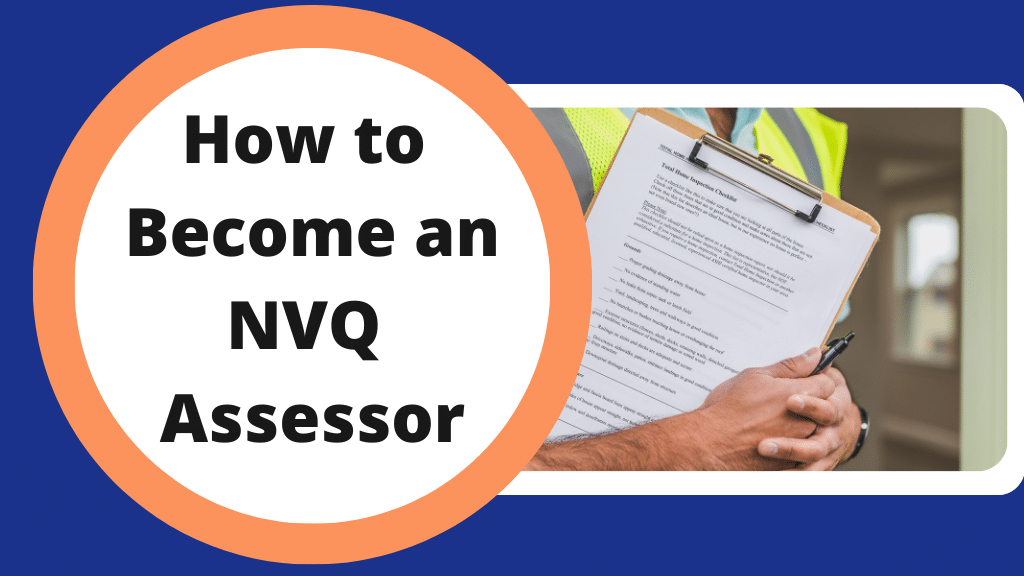
How to Become a Becoming an Nvq Assessor: Expert Guide
Are you looking to make a meaningful impact in the world of education and training? Becoming an NVQ assessor might just be the perfect career move for you.
As an NVQ assessor, you have the unique opportunity to guide and support learners, helping them achieve their qualifications and grow their skills. Imagine the satisfaction of watching your students succeed, knowing you played a crucial role in their journey.
You’ll discover the essential steps to start your path as an NVQ assessor. From the qualifications you need to the skills that will set you apart, we’ve got you covered. Get ready to unlock a rewarding career that not only enriches your professional life but also makes a difference in others’. Let’s dive in and explore how you can become an NVQ assessor.
Role Of An Nvq Assessor
An NVQ Assessor plays a vital role in vocational training. They guide and evaluate learners through the NVQ qualification process. Their main goal is to ensure candidates meet the required standards. This involves assessing skills and knowledge in real work settings.
Assessors support learners, providing feedback and guidance. They work closely with educational bodies and employers. Their role is essential in maintaining the quality of vocational education.
Key Responsibilities
Assessors observe and evaluate candidates in their workplace. They ensure learners meet the performance criteria. They provide feedback to help learners improve. Record-keeping is a big part of their job. Assessors document progress and results accurately.
They also liaise with employers to understand workplace needs. This helps tailor the assessment process. Maintaining a fair and unbiased evaluation is crucial.
Skills Required
Good communication skills are essential for an NVQ Assessor. They need to explain complex concepts simply. Patience is key when dealing with diverse learners.
Assessors must be detail-oriented. They need to observe and evaluate accurately. Organizational skills help manage multiple candidates efficiently. Understanding the vocational field is important for relevant assessments.

Qualifications Needed
Becoming an NVQ Assessor requires relevant industry experience and recognized qualifications. A Level 3 Assessor Award and expertise in the subject matter are essential. Strong communication and organizational skills are vital for assessing candidates effectively.
Embarking on the journey to become an NVQ Assessor can be both rewarding and impactful. But before you start, it’s crucial to understand the qualifications needed to excel in this role. These requirements not only ensure you are well-prepared but also help you stand out in a competitive field.
Relevant Experience
To become an NVQ Assessor, you need to have relevant experience in the industry you plan to assess. Imagine trying to teach someone how to swim without ever stepping into a pool. Having firsthand experience allows you to guide learners effectively and provide real-world insights. Your previous job roles should reflect a deep understanding of the industry standards and practices. This experience helps build trust with your learners as they know they’re learning from someone who’s been in their shoes. Consider volunteering or shadowing an assessor if you’re transitioning from a different career to gain relevant insights.
Mandatory Certifications
Certifications are non-negotiable on your path to becoming an NVQ Assessor. The most recognized certification is the Level 3 Certificate in Assessing Vocational Achievement (CAVA). This qualification equips you with the skills to assess both occupational competence and vocational skills. You might wonder, why is certification so important? It assures employers and learners that you possess the necessary skills and knowledge to assess fairly and accurately. Additionally, having this credential can open doors to more opportunities and increase your credibility in the field. Make sure to stay updated with any changes in certification requirements, as the industry standards can evolve over time. Are you ready to take the first step towards a fulfilling career as an NVQ Assessor? Dive into gaining relevant experience and securing your certifications. The path might be challenging, but the impact you can make on learners’ lives is worth every effort.
Training Pathways
Embarking on a journey to become an NVQ Assessor offers diverse training pathways. These pathways equip you with the skills needed to assess vocational qualifications effectively. Understanding the available training options can help you choose the best route for your career.
Accredited Programs
Accredited programs provide structured learning to become an NVQ Assessor. These programs often blend theory with practical experience. You gain insights into assessment processes and standards. Courses are designed by educational institutions or recognized organizations. They ensure you meet industry standards. Completion of these programs often results in certification. This certification validates your skills as an assessor.
On-the-job Training
On-the-job training offers practical experience alongside experienced assessors. You learn by doing, gaining hands-on skills in real settings. This training allows you to observe and participate in assessments. You acquire knowledge of different assessment techniques and tools. Working in real environments enhances your understanding of vocational qualifications. This method is ideal for those who prefer learning through experience.

Career Progression
Embarking on a career as an NVQ Assessor opens up exciting avenues for growth and development. As you gain experience and hone your skills, you’ll find a variety of career progression opportunities that can enhance your professional journey. This progression isn’t just about moving up the ladder; it’s about enriching your expertise and expanding your influence in the vocational training sector. Let’s explore how you can take your NVQ Assessor career to new heights through advanced opportunities and continual professional development.
Advanced Opportunities
As an NVQ Assessor, you have the chance to specialize in specific sectors. Imagine diving deep into areas like health and social care or construction, becoming a go-to expert in your field. This specialization can lead to roles with greater responsibility and higher pay.
Another path is moving into managerial positions. Supervising a team of assessors can be a rewarding step up. It’s about leading and mentoring others, helping them achieve their potential while you refine your leadership skills.
You might also consider becoming a consultant. Consulting allows you to share your knowledge with various organizations. It’s a unique opportunity to influence training strategies and drive improvements across the board.
Continual Professional Development
Continuous learning is essential in the NVQ Assessor role. Engaging in professional development keeps you at the forefront of industry standards and practices. Consider enrolling in workshops or courses related to your field.
Networking is another key aspect. Connecting with other professionals can provide valuable insights and support. Attend conferences and seminars to meet peers and learn from their experiences.
Reflect on your own experiences. Have you ever encountered a challenge that taught you a valuable lesson? Sharing these stories can not only inspire others but also solidify your own understanding and growth.
What steps will you take to advance your career? Will you specialize, manage, or consult? The choice is yours, and the opportunities are endless. Take charge of your professional journey and unlock your full potential as an NVQ Assessor.
Challenges In The Role
Becoming an NVQ Assessor involves tackling various challenges. Adapting to different learning styles is crucial. Balancing administrative tasks with student support requires effective time management.
Becoming an NVQ assessor is a rewarding career choice. However, it comes with its own set of challenges. Understanding these hurdles can prepare you for success and help you thrive in this role.
Common Obstacles
One of the first challenges you may face is adapting to diverse learning styles. Every candidate learns differently, and it can be tricky to tailor your approach to each individual. Time management is another common obstacle. Balancing assessments, feedback, and administrative tasks can feel overwhelming at times. Additionally, staying updated with industry standards and changes in NVQ guidelines requires continuous learning. This can be demanding, especially if you are juggling multiple responsibilities.
Strategies For Success
To overcome these challenges, start by honing your communication skills. Clear and open communication fosters a better learning environment and can ease the assessment process. Develop a robust time management plan. Prioritize tasks and set specific goals for each day to keep on track. Stay proactive about professional development. Attend workshops and engage in online forums to stay informed about the latest industry trends and practices. Consider using technology to your advantage. Digital tools can streamline administrative tasks, giving you more time to focus on assessments. Have you ever wondered how embracing challenges can shape your professional journey? Each obstacle presents an opportunity to grow and enhance your skills as an NVQ assessor. By facing these challenges head-on, you not only improve your capabilities but also enrich the experiences of those you assess. This not only benefits your career but also positively impacts the lives of the candidates you guide.
Benefits Of Being An Nvq Assessor
Becoming an NVQ Assessor offers numerous advantages. This role is rewarding and fulfilling. It provides personal and professional growth. You guide learners towards their career goals. Let’s explore the specific benefits of being an NVQ Assessor.
Job Satisfaction
Being an NVQ Assessor brings immense job satisfaction. You help individuals achieve their qualifications. Watching learners succeed is a fulfilling experience. You contribute to their career progress. This role requires dedication and skill.
Your expertise shapes the future of many learners. Every day is different, keeping the job exciting. You often work with diverse groups, which enriches your experience. This variety makes the role dynamic and engaging.
Impact On Learners
As an NVQ Assessor, you have a significant impact on learners. You guide them through their educational journey. You help them gain confidence in their skills. This role allows you to inspire and motivate.
You play a crucial part in their success. Your feedback helps them improve and excel. Building strong relationships with learners is essential. These connections make the learning process effective and enjoyable.

Frequently Asked Questions
What Qualifications Are Needed For Nvq Assessors?
To become an NVQ assessor, you generally need relevant industry experience and the Assessor Award, such as A1 or CAVA. These qualifications ensure you can effectively evaluate candidates’ skills and knowledge. Additionally, strong communication and organizational skills are crucial for guiding candidates through the assessment process successfully.
How Do I Gain Nvq Assessor Experience?
Gaining experience as an NVQ assessor involves shadowing experienced assessors and conducting assessments under supervision. Volunteering or working in roles related to training can also be beneficial. Practical experience is crucial for developing the skills needed to evaluate candidates’ competencies effectively.
How Long Does Nvq Assessor Training Take?
NVQ assessor training duration can vary, but typically it takes 3 to 12 months. The time depends on the course and your pace. Online and part-time options may extend the timeframe. Ensuring thorough understanding of assessment criteria and methodology is essential for successful completion.
What Is The Role Of An Nvq Assessor?
An NVQ assessor evaluates candidates’ competencies against established criteria to ensure they meet industry standards. They provide guidance and feedback, helping candidates improve their skills. Their role is crucial in maintaining the quality and credibility of vocational qualifications, supporting professional development.
Conclusion
Becoming an NVQ Assessor opens many career paths. It requires dedication and training. Start by gaining relevant qualifications. Experience in the field is essential. Embrace continuous learning and development. Networking with professionals can provide valuable insights. Stay updated with industry standards.
This role brings rewarding opportunities to help others succeed. Your journey to becoming an NVQ Assessor can be fulfilling and impactful. Take each step with confidence. With determination, you can achieve your goal. Good luck on your career path!





